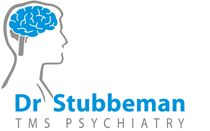
Category Archives: Research


Brain Stimulation + Imaging Pack Dual Punch to Treat, Unravel Depression Circuitry
An Interview with Amit Etkin, M.D., Ph.D.
Through Stanford brain research, the depressed feel ‘whole’ again
People with severe depression are experiencing hopeful results with brain stimulation.
Effectiveness of theta burst versus high-frequency repetitive transcranial magnetic stimulation in patients with depression (THREE-D): a randomised non-inferiority trial
In this randomised, multicentre, non-inferiority clinical trial, we recruited patients who were referred to specialty neurostimulation centres based at three Canadian university hospitals.
Intense magnetic stimulation could reduce severe depression, new study shows
A new method of brain stimulation designed by Stanford researchers to treat depression rapidly improved depressive symptoms in a small group of treatment-resistant patients who had suffered for decades with no relief, according to a study published in Brain.
Tennis First Serve Percentage Following Task and Imagery Paired tDCS
Transcranial direct current stimulation (tDCS) improves task performance following motor cortical stimulation and visual perceptual sensitivity following right inferior frontal cortical stimulation.
Bilateral neuronavigated 20Hz theta burst TMS for treatment refractory depression: An open label study
Bilateral Neuronavigated TBS-20Hz TMS brought more than two-thirds of treatment refractory depressed patients to remission. TBS-20Hz may be critical for obtaining higher remission rates.
Efficacy of twice-daily vs once-daily sessions of repetitive transcranial magnetic stimulation in the treatment of major depressive disorder: A retrospective study
The authors conducted this retrospective study to compare the treatment outcomes of patients with the major depressive disorder (MDD) who received 2 sessions of repetitive transcranial magnetic stimulation (rTMS) per day vs those who received 1 session per day.
What’s Next in Clinical TMS Study for PTSD, MDD
In a recently-published commentary, researchers discussed the growing interest in transcranial magnetic stimulation (TMS) therapy for post-traumatic stress disorder (PTSD) and major depressive disorder (MDD), and what it brings in patient symptoms.
